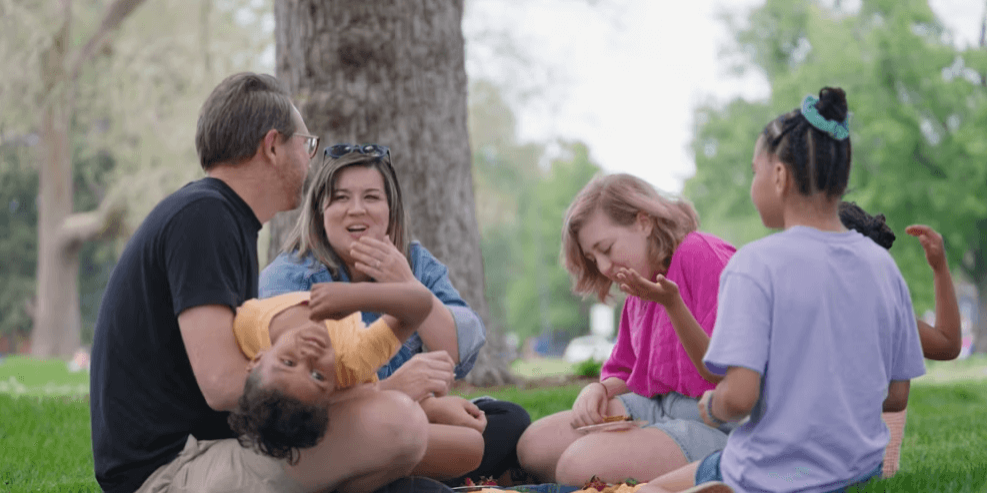Years ago, Jim Bachor, a mosaic artist and resident of Chicago, noticed a persistent pothole on his street. With hard winters and endless cycles of refreezes, potholes came with the territory – everyone knew they were there and everyone knew they needed to be filled. But that was (obviously) the city’s job.
Like the winter-torn streets of Chicago, the foster care system is well-known for its brokenness.
If you hang around the foster care space long enough, you’ll hear the familiar refrains: “The foster care system is broken.” “There’s a foster care crisis.” “Foster care needs to be fixed.”
There’s an element of urgent truth here. The potholes are real. The words “not enough” are heard every day inside our nation’s foster care system: Not enough resources. Not enough support. Not enough families.
But in the face of these urgent challenges, what if we drew inspiration from our friend Jim?
One night, determined to do something about the pothole on his street, Jim decided to take matters into his own hands and installed a piece of mosaic art in the pothole. Since then, he has done over a hundred similar installations, turning potholes into mosaics.
I recently interviewed Jim on our More Than Enough Podcast. He told me he was intrigued by the idea of replacing something everyone universally hates (potholes) with images of things that people universally love – like flowers, ice cream treats and junk food.
Similarly, it’s not our job as the church to stand around and point out potholes. It’s our job to grab a bucket of asphalt and fill them with something beautiful.
Yes, the foster care system faces serious challenges and sometimes contributes to long-term pain for children and families. And sometimes children and families do slip through the cracks. But this same system protects children every day and creates environments where hurting and broken adults can get help for addictions and get access to resources they’ve never had before. Child welfare professionals are on the front lines of this challenging work, and while constructive accountability is essential, we need to move beyond a mindset of finding fault if we’re going to transform foster care.
When we work together as churches, organizations, advocates and social services in our communities, we can bring our small fragmented pieces together to play a role in creating a larger piece of beauty. It’s a way of “fixing” foster care that doesn’t first and foremost point fingers, but rolls up our sleeves and believes that we have a role in transforming foster care through creative collaboration.
In fact, when we work together to fill the biggest gaps for children and families where we live, we can move from not enough to more than enough before, during, and beyond foster care.
To make all of this tangible, here’s a glimpse of what can happen when people like you – in communities like yours – work together to care for children and families:
This is what’s possible when we reframe our efforts to fix foster care from pointing out the potholes to filling them together.
And as the Body of Christ, when we serve our communities with humility, foster unity across organizations and churches, and care for children and families with compassion and perseverance, we’re bearing witness to God’s love and power to transform what’s broken into something beautiful.
So let’s bring our pieces together and ask God to use us to fill the potholes in our communities.
—————–
Join More Than Enough Essentials, a one-week online course, to learn more about how you can work with others to fill the biggest gaps in caring for children and families in foster care where you live.
–Jason Weber is the National Director of the More Than Enough Initiative at CAFO

